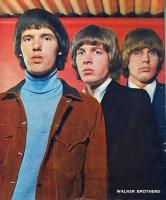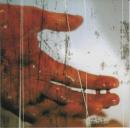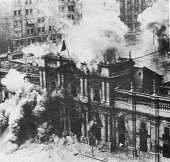Baby, it's slow
When lights go low
There's no help, no
Baby, it's slow
When lights go low
There's no help, no
He's drilling through the Spiritus Sanctus tonight
Through the dark hip falls
Screaming, "Oh, you mambos
Kill me and kill me and kill me"
If I jerk the handle
You'll die in your dreams
If I jerk the handle, jerk the handle
You'll thrill me and thrill me and thrill me
Baby, it's slow
When lights go low
There's no help, no
When lights go low
There's no help, no
Baby, it's slow
When lights go low
There's no help, no
He's drilling through the Spiritus Sanctus tonight
Through the dark hip falls
Screaming, "Oh, you mambos
Kill me and kill me and kill me"
If I jerk the handle
You'll die in your dreams
If I jerk the handle, jerk the handle
You'll thrill me and thrill me and thrill me
Baby, it's slow
When lights go low
There's no help, no
Contributed by krzyś - 2014/10/8 - 01:35
×
![]()
Note for non-Italian users: Sorry, though the interface of this website is translated into English, most commentaries and biographies are in Italian and/or in other languages like French, German, Spanish, Russian etc.






Preceded and paralleled by a slow, haunting drone of synth strings accompanied by a repeated percussive bass note, these verses convey an equally sinister allegory. With John Walker softly harmonizing along, Scott Walker sets the scene, describing the torture against Chilean dissidents under the Pinochet dictatorship. The torture is slow and conducted in the low light of a torture chamber. Scott continues, emphasizing the severity of these sadistic acts, saying, “There’s no help, no.” Here, Scott is speaking as the torturer, assuring his victim that salvation is not coming. The music accompanying these lines is constant and feeds into the song’s emotional bridge.
In Chile, converted cultural centers, stadiums, locker-rooms, and even The Esmeralda, a ship of the Chilean Navy, were used as torture chambers. Under Augusto Pinochet, there were 1,300 prison camps and torture centers. The most notable centres of torture under Pinochet were Villa Grimaldi outside of Santiago, where approximately 4,500 people were detained, and Colonia Dignidad, a concentration camp with Nazi ties outside of Parral, Chile.
genius